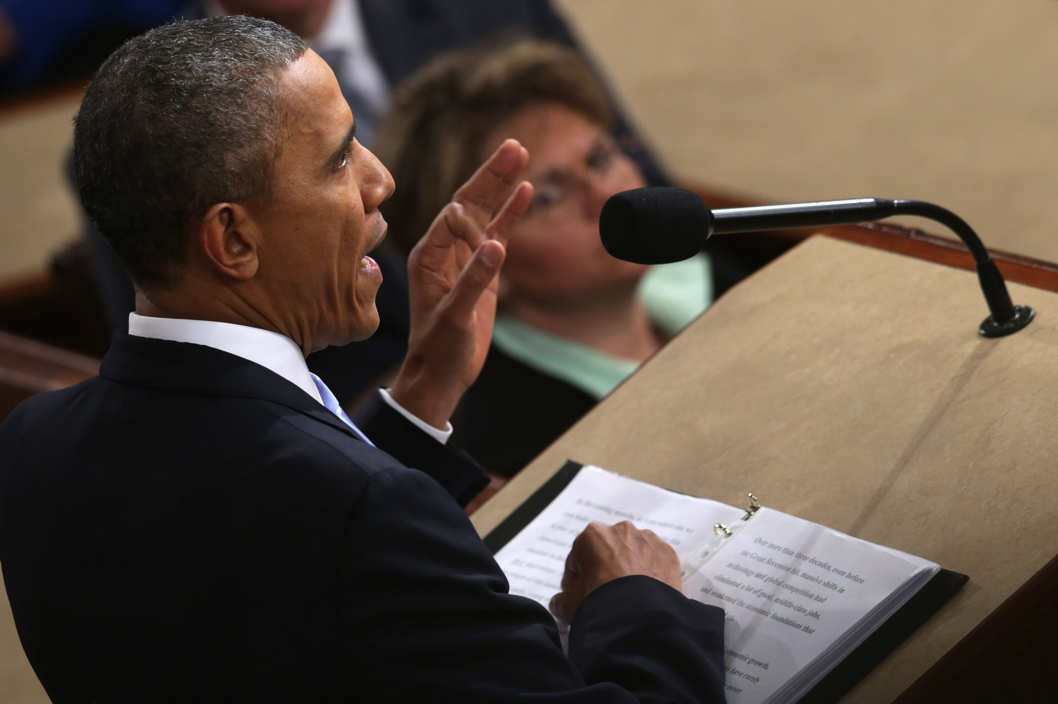
Have you ever bitten into a fruit and found that it was bitter? Bitterness is often considered the most sensitive of tastes. Many consider it to be unpleasant, sharp or disagreeable. Because it’s viewed as unpleasant or disagreeable, we find it more comforting to deal with a sweeter fruit. As I watched the State of the Union Address it seems that President Obama avoided the world’s bitter fruit in favor of the sweet.
When referring to the worlds bitter fruit I have in mind Abel Meeropol’s 1937 poem, “Bitter Fruit”:
Southern trees bear strange fruit,
Blood on the leaves and blood at the root,
Black bodies swinging in the southern breeze,
Strange fruit hanging from the poplar trees.
Pastoral scene of the gallant south,
The bulging eyes and the twisted mouth,
Scent of magnolias, sweet and fresh,
Then the sudden smell of burning flesh.
Here is the fruit for the crows to pluck,
For the rain to gather, for the wind to suck,
For the sun to rot, for the trees to drop,
Here is a strange and bitter crop.
While we no longer see bodies swinging from trees in America, our world is still full of “bitter fruit”. We see these fruit in places like Nigeria, Republic of Congo, Sudan, Rwanda and even Chicago. In January of this year over 2,000 have been slaughtered in Nigeria and more are dying daily, these are bitter fruit. Also in January of this year 17 people lost their lives during a terrorist attack in Paris but the world seems to treat it as a sweeter fruit. As we watched the State of the Union address, we saw our President avoid the bitter fruit by mentioning the attack in Paris and failing to mention the massacre in Nigeria. What caused the avoidance of the world’s bitter fruit?
America and the western world have been conditioned for centuries to devalue the humanity of people of color. When I say American and western, I do not mean “white only”, even people of color have been conditioned to devalue our own humanity. In the Journal for Experimental Psychology , Gregory M. Walton points out that “Stereotype lift”, is the performance boost caused by the awareness that some other group is negatively stereotyped. People of color have been and continue to be the source of negative stereotypes. This negative stereotype is seen when the media portrays people of color as dangerous criminals. It’s seen when reality television shows portray people of color as thugs or sex symbols. It’s seen when federal data show that blacks, age 15 to 19, were killed at a rate of 31.17 per million, while just 1.47 per million white males in that age range died at the hands of police. These stereotypes do not just impact the dominant culture; they impact the people of color as well. Mr. Obama did not choose to side with those of us who are the source of negative stereotypes. This avoidance could be seen by his choice not to voice support for victims in Nigeria. Could it be that the fruit is too bitter even for him?
Ten minutes of Mr. Obama’s address was focused on foreign policy. During those ten minutes, he did choose to voice his support for victims of the Paris attacks saying, “First, we stand united with people around the world who’ve been targeted by terrorists — from a school in Pakistan to the streets of Paris.” He did find room to address issues in Russia, Afghanistan, Pakistan, Iran, North Korea, South Asia, Syria, North Africa but not Nigeria. I listened intently hoping that Mr. Obama would have the courage to stand with the people of Nigeria, he did not. While we applaud his willingness to stand with the people of Pakistan and Paris, the blood of over 2,000 bitter fruit flows in Nigeria “for the rain to gather for the wind to suck”.
Mr. Obama is not the only one to blame for the worlds unwillingness to address issues facing bitter fruit. The blame also lies squarely at the feet of everyone who does not speak up against injustice. The blame lies with those of us who love and support Mr. Obama but are unwilling to challenge him. The blame lies with those of us who gladly repost Mr. Obama’s statement, “I don’t have any more elections to run… I know because I won both of them” but did not notice his avoidance of the bitter fruit. We as citizens have to raise the issue in order to give Mr. Obama political space to stand in support of hurting people in Nigeria and other places bearing bitter fruit.
The question is are we willing to hear the cries of the bitter fruit? Are we willing to stop ignoring the smell of the bitter fruit? Are we willing to push past stereotypes imposed upon us in order to value all lives? Are whites willing to value the life of 2,000 blacks in Nigeria and are blacks willing to value the lives of 17 French citizens in Paris? Are you willing to show support for all lives? If your answer is no then Mr. Obama will continue to avoid the bitter fruit in favor of the sweet. If your answer is no then the world will continue to make people of color out to be bitter fruit and the world will continue to produce a strange and bitter crop.